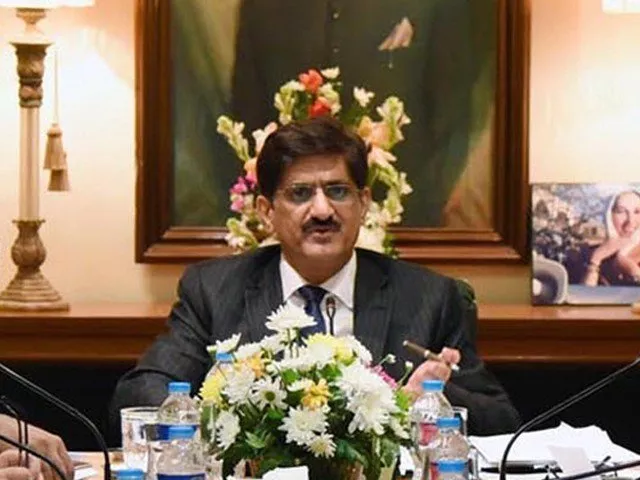CM sheds light on relief programme allocation
Says 18th Amendment allowed provinces to take practical measures against pandemic
KARACHI: The Sindh government has allocated Rs34 billion for a social protection programme to provide relief to the needy, farmers, small and medium enterprises (SMEs) and others in the wake of the coronavirus-induced economic crisis, stated Sindh Chief Minister Syed Murad Ali Shah on Thursday.In his post-budget briefing, Shah said that in order to ensure food security and reduce inflation and unemployment, the government had devised a strategy to encourage community-driven economic activities, focusing on supporting home-based businesses and SMEs.
He added that despite financial constraints, the Sindh government had focused on health, education and agriculture in the budget for the upcoming fiscal year, boosting the health budget in particular from Rs13 billion to Rs23 billion.
Going over the figures presented in the budget speech the previous day, Shah said that Rs20 billion had been set aside under the Sindh Peoples Support Programme for cash transfers to the needy, adding that the relief provided amid the Covid-19 lockdown was not been enough. "We do not know when the pandemic will end, and so we have kept funds for it in the budget," he explained.
He further added that no new taxes had been introduced in the budget, while the increase in non-development expenditure had been restricted to seven per cent, at a total of Rs968.99 billion.
He explained that this increase was mainly due to the pandemic-related 'pro-poor' social protection and economic sustainability package of Rs34.2 billion, along with the enhanced health and education allocations. Meanwhile, according to him, the austerity measures in the non-development budget had created space for the development budget.
Challenges to 18th Amendment
Talking at length about the 18th Amendment and the Centre's attempts to curtail the powers of the provinces, he remarked that this constitutional amendment had been an important step in devolving power from the federal government to the provincial governments.
"I will mince no words in saying that it was only due to these devolved powers that Sindh could spearhead preventative safety measures against Covid-19 in the country," he stated, adding that the amendment had equipped the provinces to design workable strategies and take practical measures to address the pandemic.
"In the absence of devolved powers, the provinces would have looked to the Centre for instructions and resources, and there would have been little possibility of prompt action, resulting in colossal damage," he maintained. "But with the 18th Amendment, the situation remained under control."
Shah argued that any changes or reversal in the amendment could reduce the powers of the provinces and consequently weaken the federation itself, creating a trust deficit between them and the Centre.
Shortfall
Expressing dismay over receiving Rs229 billion less than Sindh's actual share from the federal government, the CM pointed out that the provincial budget depended mainly upon federal transfers, which constituted over 70 per cent of the budget.
"The Sindh government sets its development and non-development programmes and targets based on the Centre's commitment. Any shortfall seriously impacts our performance," he added.
According to him, the Centre had set a collection target of Rs5.55 trillion for the Federal Board of Revenue, from which Sindh was to receive Rs835.3 billion in line with the share distribution formula.
"In reality, the federal government conveyed year-end revised estimated at a total of Rs606.7 billion, falling short by 27 per cent," he said, adding that by the last month of the current fiscal year, Sindh had received only Rs525.1 billion from the Centre - 31 per cent less than the estimate.
Published in The Express Tribune, June 19th, 2020.


COMMENTS
Comments are moderated and generally will be posted if they are on-topic and not abusive.
For more information, please see our Comments FAQ